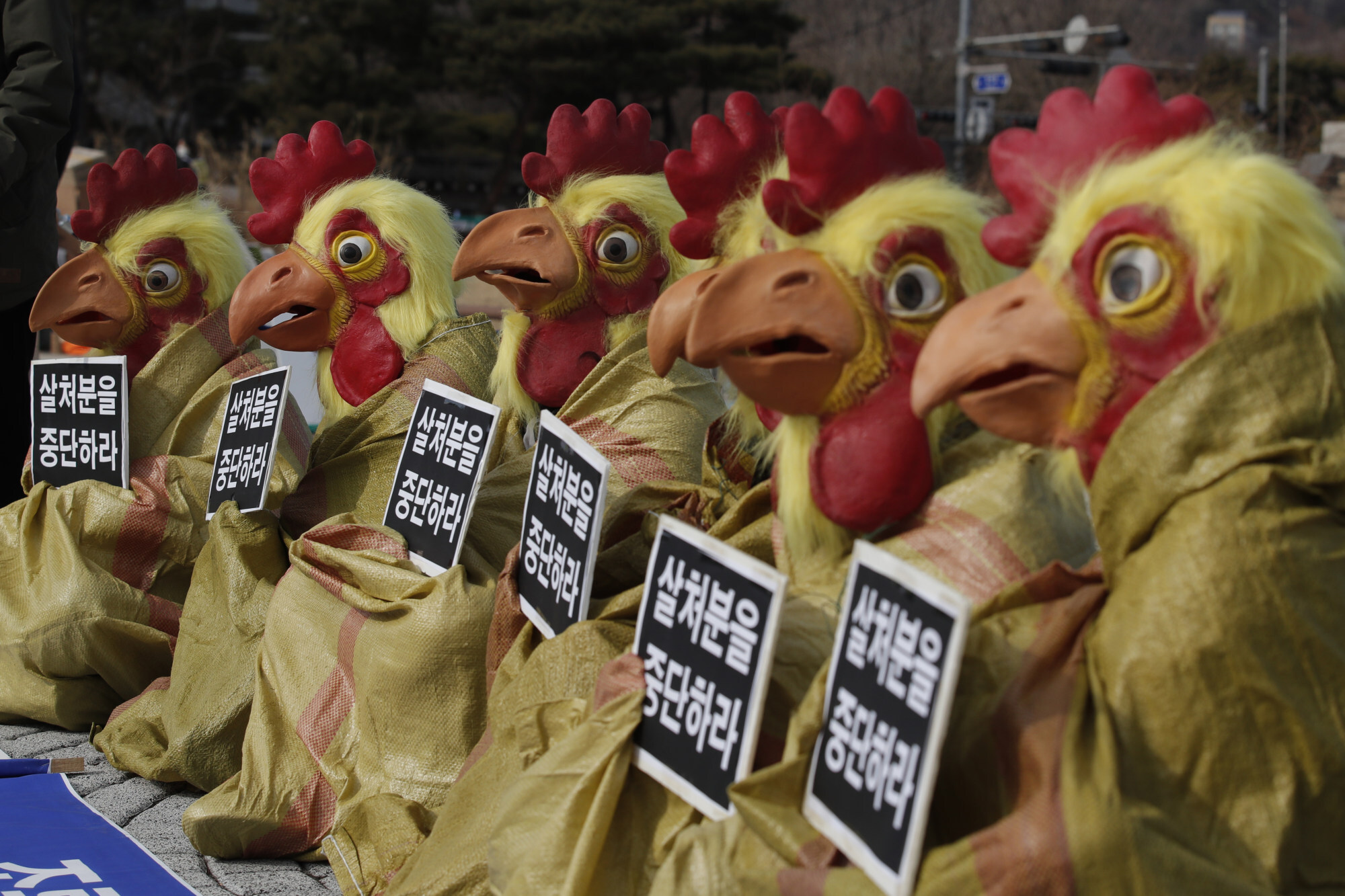
Bird flu outbreak: half a million chickens die in Burkina Faso
- The outbreak of the highly pathogenic H1N1 strain of avian flu was detected late December; around 500,000 chickens have since died of the disease or been culled
- Elsewhere, Bulgarian veterinary authorities cull more than 5,800 ducks at an industrial farm; a wild duck killed by a hunter in the US was found to have bird flu
At least half a million chickens have been either killed by a bird flu outbreak in Burkina Faso or culled to prevent the virus spreading, the West African country announced Saturday.
The outbreak of the highly pathogenic H1N1 strain of avian flu was detected late last year at 42 farms spread across seven regions in the centre and west of the country, Animal Resources Minister Moussa Kabore told a press conference.
“At the end of December 2021, we noted a high mortality rate among poultry at our country’s production sites,” Kabore said, adding that tests had confirmed the presence of H5N1 bird flu.
‘Extremely rare’ case of bird flu in human detected in England
By January 7, around 500,000 chickens had either died of the disease or culled and 1.3 million boxes of eggs had been destroyed, he added.
The government has announced several measures to try stamp out the disease, including monitoring spots where wild birds gather for possible cases and capturing and testing sick or dead birds for the virus.
Burkina Faso has been hit by successive waves of bird flu since the H5N1 strain swept the globe in 2006. In most cases the outbreaks have been blamed on migratory birds.
Livestock-rearing is one of Burkina Faso’s biggest industries and its third-largest foreign exchange earner, after the production of gold and cotton. Poultry is particularly popular, with many households raising chickens for their own consumption or as a way of making money.

The announcement follows the news that Bulgarian veterinary authorities on Wednesday said they will cull more than 5,800 ducks after detecting a bird flu outbreak at an industrial farm in the southern village of Zalti Bryag.
This is the fifth industrial farm hit by the highly pathogenic bird flu type A in southern Bulgaria since December.
A wave of bird flu in Asia and Europe has a greater risk of spreading to humans because of a high number of variants, the World Organisation for Animal Health said recently.

Meanwhile, in the US, a duck killed by a hunter in South Carolina was found to have a contagious and dangerous bird flu that has not been detected in the wild in the US in five years.
The US Department of Agriculture alerted global health officials. Scattered Eurasian H5 infections have been detected in 2022 from Portugal to Bulgaria and in December, two cases were reported in eastern Canada, officials said.
Anyone who has poultry, including backyard farms, needs to review their practices to keep birds safe from disease, said State veterinary surgeon Michael J Neault, who runs Clemson University’s Livestock Poultry Health programme.

“So far we have no indication that (the flu) has jumped from wild migratory birds to poultry and we’d very much like to keep it that way,” Neault said in a statement.

.png?itok=arIb17P0)

